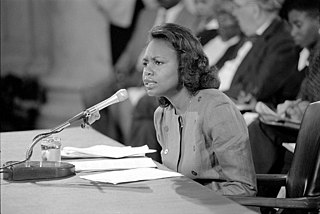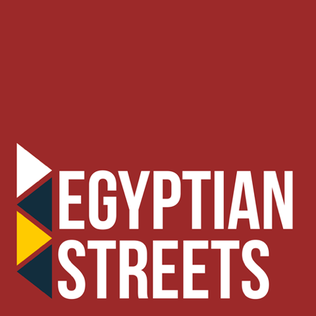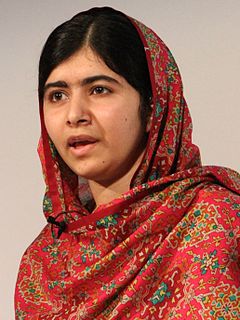Related Research Articles

Sexual harassment is a type of harassment involving the use of explicit or implicit sexual overtones, including the unwelcome and inappropriate promises of rewards in exchange for sexual favors. Sexual harassment includes a range of actions from verbal transgressions to sexual abuse or assault. Harassment can occur in many different social settings such as the workplace, the home, school, churches, etc. Harassers or victims may be of any sex or gender.

Street harassment is a form of harassment, primarily sexual harassment that consists of unwanted sexualised comments, provocative gestures, honking, wolf-whistlings, indecent exposures, stalking, persistent sexual advances, and touching by strangers, in public areas such as streets, shopping malls and public transportation.

Crime in Egypt is moderate, but still occurs in various forms. Forms of crime include drug trafficking, money laundering, fraud, corruption, black marketeering etc.
The role of women in Egypt has changed throughout history, from ancient to modern times. From the earliest preserved archaeological records, Egyptian women were considered equal to men in Egyptian society, regardless of marital status.
Feminism in Egypt has involved a number of social and political groups throughout its history. Although Egypt has in many respects been a forerunner in matters of reform particularly "in developing movements of nationalism, of resistance to imperialism and of feminism," its development in fighting for equality for women and their rights has not been easy.
Slut-shaming is the practice of criticizing people, especially women and girls, who are perceived to violate expectations of behavior and appearance regarding issues related to sexuality. The term is used to reclaim the word slut and empower women and girls to have agency over their own sexuality. It may also be used in reference to gay men, who may face disapproval for sexual behaviors considered promiscuous. Slut-shaming rarely happens to heterosexual men.
Operation Anti Sexual Harassment, is an activist group in Cairo, Egypt, whose goal is to prevent sexual harassment and assault, and in particular the mass sexual assaults that occur during protests and religious festivals. The group is known for intervening in assaults by mobs in Cairo's Tahrir Square and is one of several that have begun to organize against sexual harassment of women in Tahrir since the 2011 Egyptian revolution.

Women played a variety of roles in the Arab Spring, but its impact on women and their rights is unclear. The Arab Spring was a series of demonstrations, protests, and civil wars against authoritarian regimes that started in Tunisia and spread to much of the Arab world. The leaders of Tunisia, Egypt, Libya, and Yemen were overthrown; Bahrain has experienced sustained civil disorder, and the protests in Syria have become a civil war. Other Arab countries experienced protests as well.
Annie Elizabeth Clark is a women's rights and civil rights activist in the United States. She was one of the lead complainants of the 2013 Title IX and Clery Act charges lodged against the University of North Carolina at Chapel Hill, claiming that the institution violated the law by the way they handled sexual assault complaints. Clark and Andrea Pino, then a fellow UNC student and also a victim of sexual assault, launched a nationwide campaign to use Title IX complaints to force U.S. universities to address sexual assault and related problems more aggressively. Clark is co-founder with Pino of End Rape on Campus, an advocacy group for victims of campus sexual assault.
Rape in Egypt is a criminal offense with penalties ranging from 15 to 25 year and a lifetime sentence if the rape included abduction. Marital rape is legal. By 2008, the U.N. quoted Egypt's Interior Ministry's figure that 20,000 rapes take place every year, although according to the activist Engy Ghozlan (ECWR), rapes are 10 times higher than the stats given by Interior Ministry, making it 200,000 per year. Mona Eltahawy has also noted the same figure (200,000), and added that this was before the revolution.
Prada gender discrimination case was a lawsuit filed in Japan by Prada ex-employee Rina Bovrisse accusing Prada of sexual harassment and gender discrimination in the workplace. Prada denied all charges and countersued Bovrisse for defamation. In October 2012, Judge Reiko Morioka rejected all of Bovrisse’s claims against Prada ruling that “the factual content of Bovrisse’s assertions that were based on gender discrimination and sexual harassment was not true and that there was no justifiable reason to believe such content to be true”. Bovrisse, not satisfied with the ruling, took the issue to United Nations Economic and Social Council. The Prada countersuit, as of January 1, 2014, is still pending.
Traditional gender roles in Egypt are prevalent and clearly defined. These roles are largely associated with traditional Islamic family structures, wherein women's roles are closely tied to the domestic sphere and men's roles tied to the public sphere. Gender roles are based on assumed biological differences between the sexes and can lead to dramatically different life experiences as well as opportunities and outcomes for individuals. Consequently, when looking at a number of indicators, women often find themselves disadvantaged relative to men.
Halima Rafiq was a Pakistani cricketer from Multan, Punjab, Pakistan. Rafiq accused Multan Cricket Club chairman Maulvi Muhammad Sultan Alam Ansari of sexual harassment during a cricket match in Multan Cricket Stadium, for which she was backed by her female teammates but was thereafter sued by Alam Ansari for ₨20 million. She died after ingesting acid on 13 July 2014.

Egyptian Streets is an English language independent news website and organization founded in July 2012 by Egyptian journalist Mohamed Khairat as a blog, but later developed into a media company in March 2014. It claims to be the number one English media outlet in Egypt by reach. In February 2015, more than 800,000 visited the website.

2014 was described as a watershed year for women's rights, by newspapers such as The Guardian. It was described as a year in which women's voices acquired greater legitimacy and authority. Time magazine said 2014 "may have been the best year for women since the dawn of time". However, The Huffington Post called it "a bad year for women, but a good year for feminism". San Francisco writer Rebecca Solnit argued that it was "a year of feminist insurrection against male violence" and a "lurch forward" in the history of feminism, and The Guardian said the "globalisation of protest" at violence against women was "groundbreaking", and that social media had enabled a "new version of feminist solidarity".
Soraya Bahgat is a Finnish-Egyptian social entrepreneur and women’s rights advocate active in Egypt.

The mass sexual assault of women in public has been documented in Egypt since 2005, when Egyptian security forces and their agents were accused of using it as a weapon against female protesters during a political demonstration in Tahrir Square, Cairo on 25 May. The behavior spread, and by 2012 sexual assault by crowds of young men was seen at protests and festivals in Egypt.
Engy Ayman Ghozlan is a social activist and journalist who highlights problems of sexual harassment of women in the streets of Egypt. Starting in 2005, she was a project manager at the NGO known as the Egyptian Center for Women's Rights (ECWR) and actively pursued efforts to make Egypt safe for women. She is known as the "voice and face" of efforts to eradicate sexual harassment of women in Egypt.
The #MeToo movementin Pakistan is modeled after the international #MeToo movement and began in late 2018 in Pakistani society. It has been used as a springboard to stimulate a more inclusive, organic movement, adapted to local settings, and has aimed to reach all sectors, including the lowest rungs of society.
Deena Mohamed is an Egyptian graphic designer, graphic novelist, and illustrator, who was born and raised in Egypt. She made her debut at the age of 18 with her webcomic Qahera, combining both Islamic and feminist values. Mohamed has collaborated with various advocacy groups, such as Harassmap and Centre for Applied Human Rights, to create informational comics.
References
- ↑ "Who we are". HARASSmap. Retrieved 29 October 2013.
- ↑ "Who we are and why we began". HARASSmap. Retrieved 29 October 2013.
- ↑ ""Clouds in Egypt's Sky" Sexual Harassment: from Verbal Harassment to Rape A Sociological Study". Egyptian Center for Women's Rights. United Nations Population Fund. Archived from the original on 2 December 2013. Retrieved 29 October 2013.
- ↑ "How and why we began". HARASSmap. Retrieved 29 October 2013.
- ↑ Ansari, Hina P. (February 11, 2013). "Could Mobile Technology Combat Sexual Harassment?". Huffington Post. Retrieved 29 October 2013.
- ↑ "Our core team". HARASSmap. Archived from the original on 6 May 2014. Retrieved 29 October 2013.
- ↑ "Who we are". HARASSmap. Retrieved 29 October 2013.
- ↑ Yuce, Serpil T.; Nitin Agarwal; Rolf T. Wigand; Rebecca Robinson (May 7, 2013). "Cooperative Networks in Interorganizational Settings: Analyzing Cyber-Collective Action" (PDF). Proceedings of the Workshop on Multiagent Interaction Networks: 4. Archived from the original (PDF) on 3 March 2016. Retrieved 29 October 2013.
- ↑ "Report Harassment". HARASSmap. Retrieved 29 October 2013.
- ↑ Ansari, Hina P. (February 11, 2013). "Could Mobile Technology Combat Sexual Harassment?". Huffington Post. Retrieved 29 October 2013.
- ↑ Lee, Kermeliotis, Ian, Teo (December 21, 2012). "'Harassment map' helps Egyptian women stand up for their rights". CNN. Retrieved 29 October 2013.
- ↑ Lee, Kermeliotis, Ian, Teo (December 21, 2012). "'Harassment map' helps Egyptian women stand up for their rights". CNN. Retrieved 29 October 2013.
- ↑ Ansari, Hina P. (February 11, 2013). "Could Mobile Technology Combat Sexual Harassment?". Huffington Post. Retrieved 29 October 2013.
- ↑ "Community action". HARASSmap. Archived from the original on 27 October 2013. Retrieved 29 October 2013.
- ↑ "HARASSmap: Youth Award Winner". World Summit Youth Award. October 2011. Retrieved 29 October 2013.
- ↑ "Best Use of Technology for Social Good". Deutsche Welle. Archived from the original on 13 February 2014. Retrieved 29 October 2013.
- ↑ "Incubated social enterprises". Nahdet el Mahrousa. Archived from the original on 24 December 2013. Retrieved 29 October 2013.
- ↑ "HarassMap: Using Crowdsourced Data in the Social Sciences". IDRC. Archived from the original on 17 October 2013. Retrieved 29 October 2013.